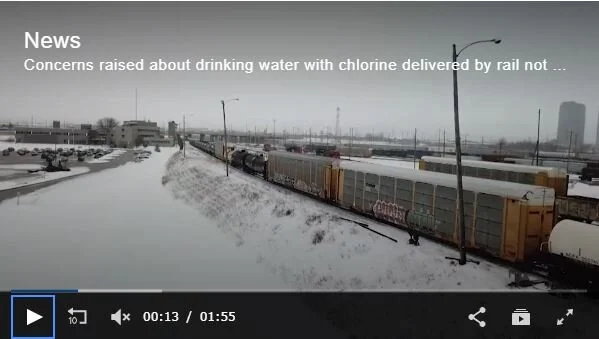It's been more than 40 days since Wet'suwet'en members and supporters occupied a Coastal GasLink work site near the Wedzin Kwa (Morice River) — and despite multiple arrests, they say they're determined to stay put until Coastal GasLink permanently halts work on their territory. "It's our sacred headwaters, our clean drinking water, and our salmon spawning river," said Sleydo', referring to the Wedzin Kwa. Sleydo', whose English name is Molly Wickham, is the spokesperson for the Gidimt'en Checkpoint, which controls access to the part of the Wet'suwet'en territory on which the drill site is located.
Concerns raised about drinking water as chlorine delivered by rail held up by blockades
Hundreds of freight trains are at a standstill across Ontario, not moving because of ongoing rail blockades. One organization has now raised concerns about the impact it could have on drinking water since the chemicals needed to treat it are transported by rail. “We are very concerned actually,” says Cathy Campbell, president of Responsible Distribution Canada. Campbell says large cities and municipalities could run out of chlorine in a week or two.
Canada’s Indigenous pipe dream might end Trudeau’s Trans Mountain nightmare
An Indigenous-led group plans to offer to buy a majority stake in the Trans Mountain oil pipeline from the Canadian government this week or next, a deal that could help Prime Minister Justin Trudeau mitigate election-year criticism from environmentalists. The group, called Project Reconciliation, aims to submit the $6.9 billion offer as early as Friday, managing director Stephen Mason told Reuters, and start negotiations with Ottawa two weeks later. Project Reconciliation said the investment will alleviate First Nations poverty, a watershed for Indigenous people who have historically watched Canada’s resources enrich others.




